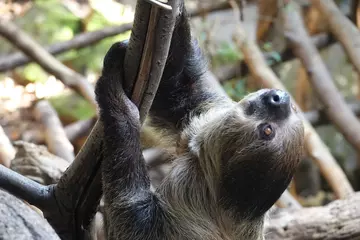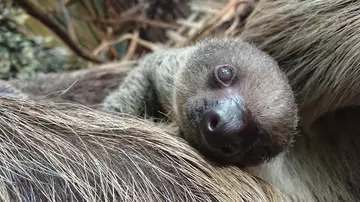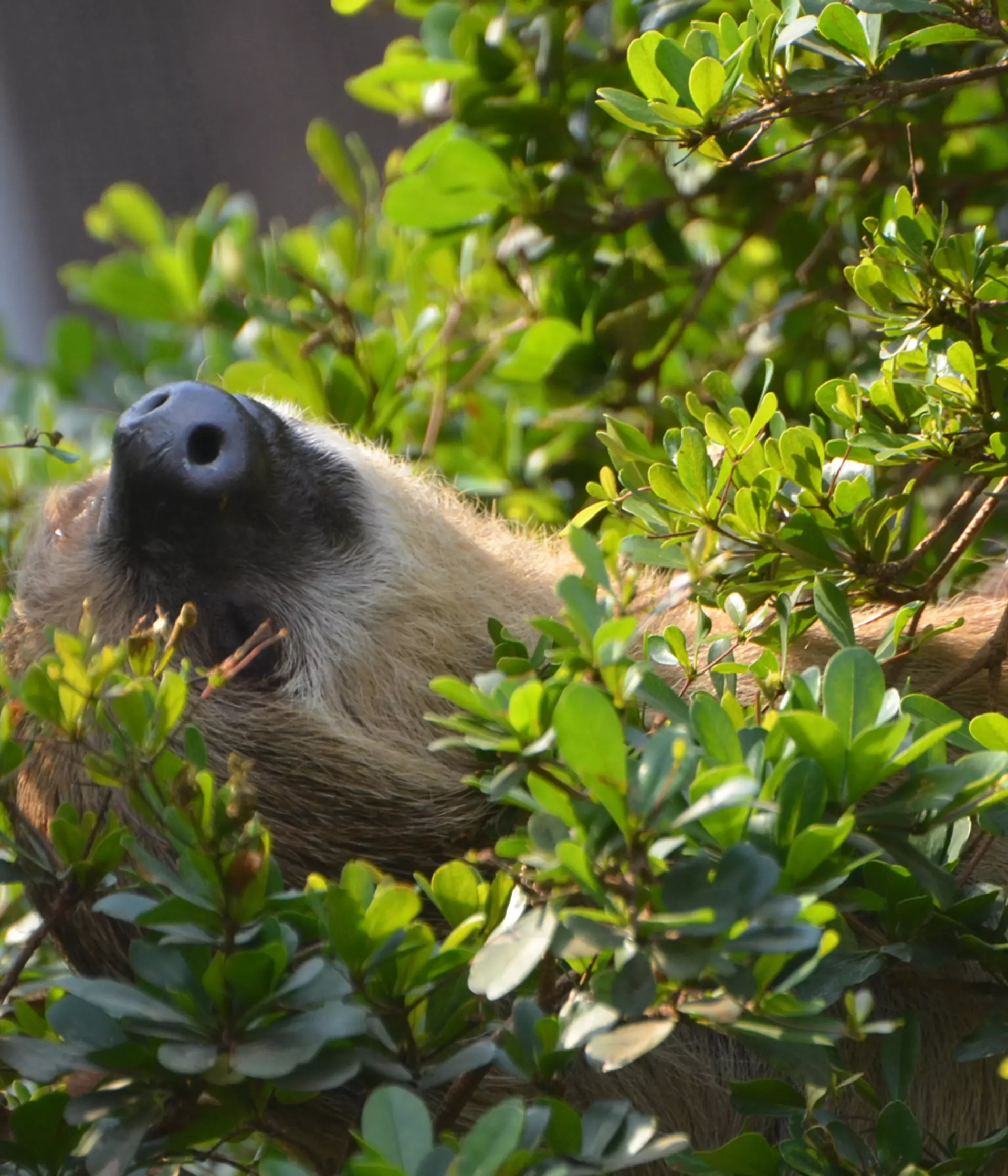
Zookeeper Steve Goodwin explains what it takes to train our sloths, why it’s so important, and why the end result is always worth it!
Sloth training
Training a sloth can be challenging at the best of times. One of many reasons is their unpredictable activity levels (no they aren’t lazy, but it is different to training other mammals). They might have been active for many hours in the night, which means they are now asleep high in the trees. If they are tired, no amount of food or calling them over is going to work!

Being a sloth zookeeper
What you need is:
- Patience. Let’s face it, you could be waiting a while.
- To give the sloth control. When training, we let Marilyn choose whether to take part by using the direction of her head. If she is facing us, we start a session. If she is taking reinforcement (sweetcorn is her favourite) we continue. If she stops, we stop. If she looks away and remains looking away, we finish the training session.
- Flexibility. We often have to stop doing something else because the sloth has decided now is the time to be low enough for you to gain access.
- Many hands. If we are doing an ultrasound then we need multiple hands. Someone to feed the sloth, the vet needs to have access to her stomach, someone to hold the machine so the vet can view and scan at the same time and someone else to feed or distract the monkeys (they always want to help).
- Some more patience. Sometimes it can take weeks to get one ultrasound.
- A good sense of humour. It’s not unusual for Marilyn to climb away at the last minute after everyone has set up, or for her to lick the ultrasound gel off her stomach during training because she likes the taste.
- And finally, even more patience! Even if everything is perfect and we get the ultrasound, if her bladder is full it can obscure almost everything due to how large it is!
Marilyn is a great animal to work with and is trained for dental checks, general palpation (feeling with hands during a physical examination) and ultrasounds. For all the frustration (everyone setting up, vets coming down and all the people helping only for her to change her mind), the fact that she can make those choices gives us better access when she wants to participate. It is because of this we have been able to record some amazing data on the development of the foetus and the various stages of pregnancy.
The end result is always worth it when it leads to this:

